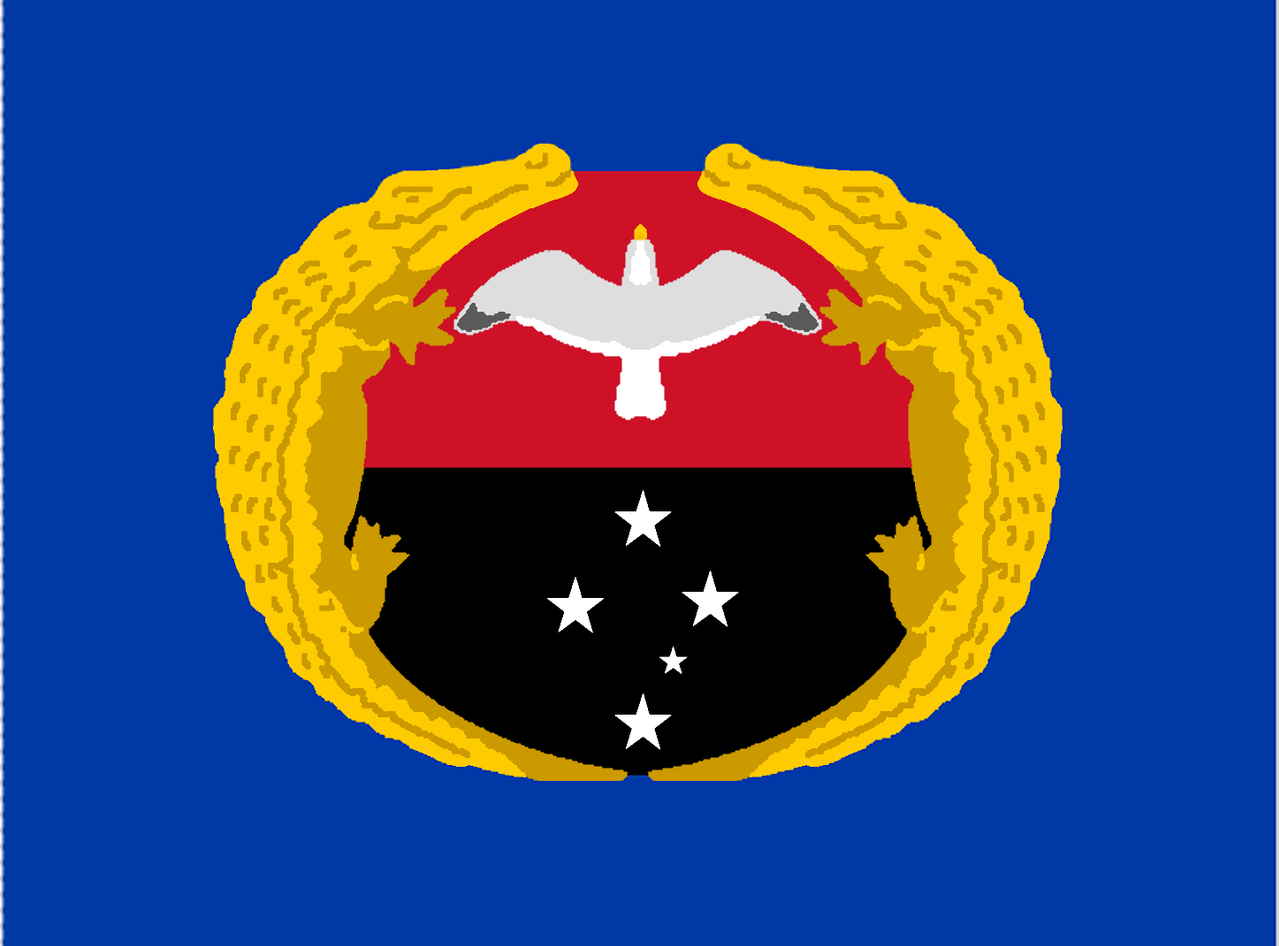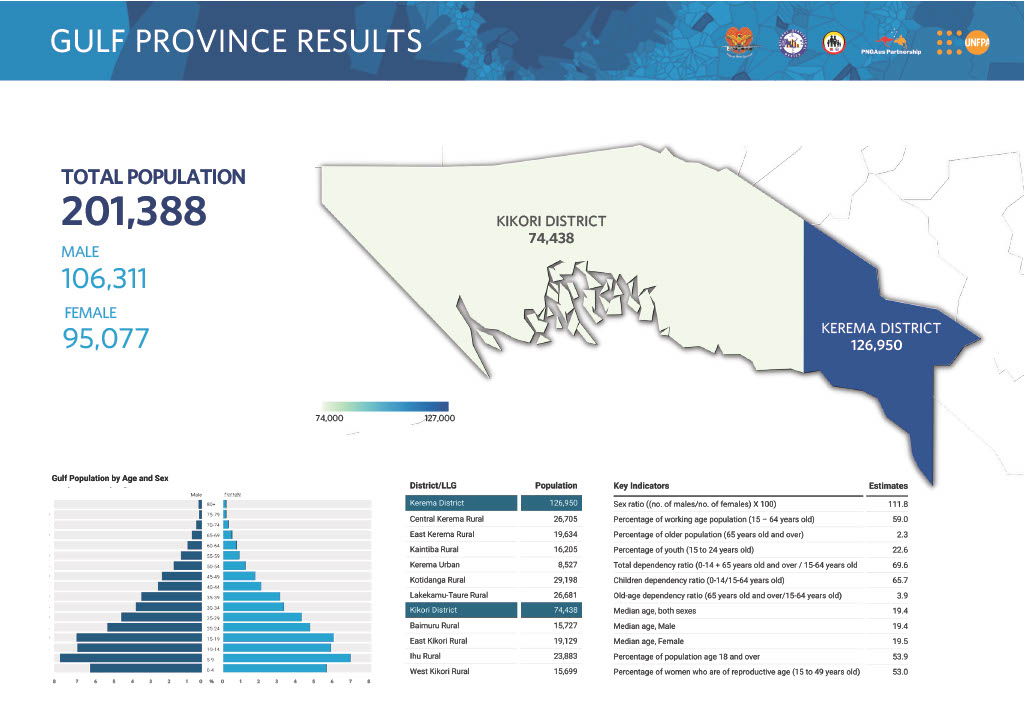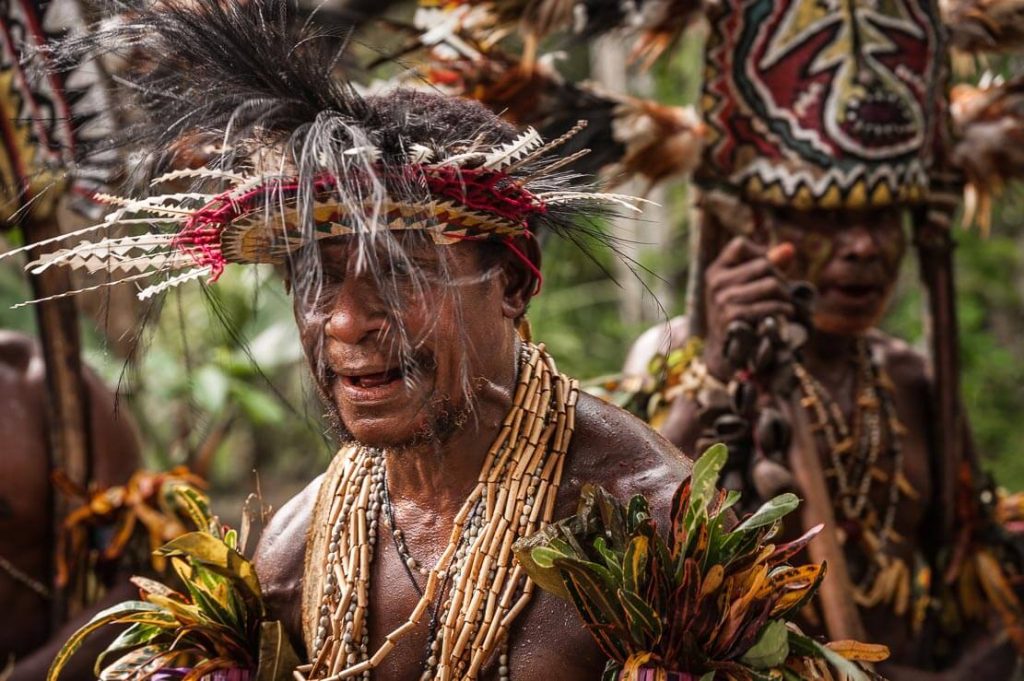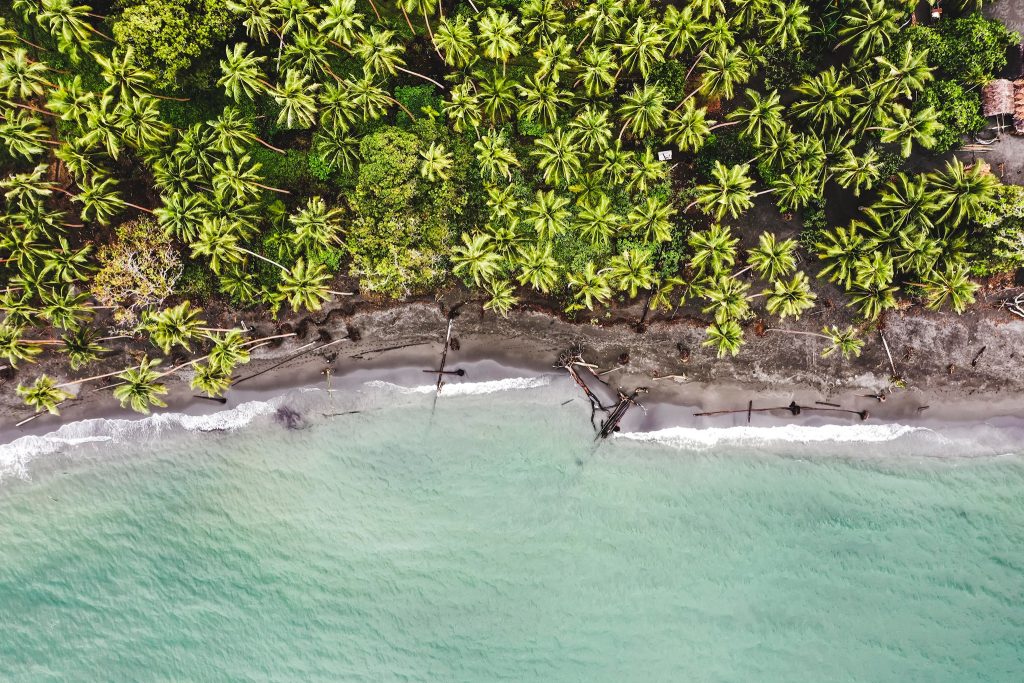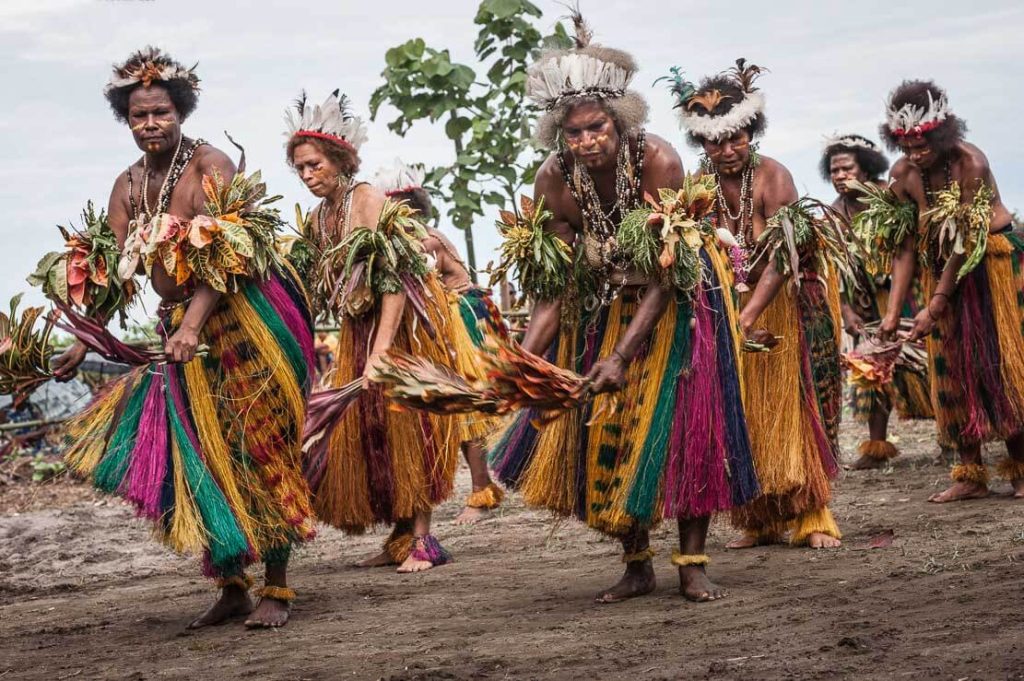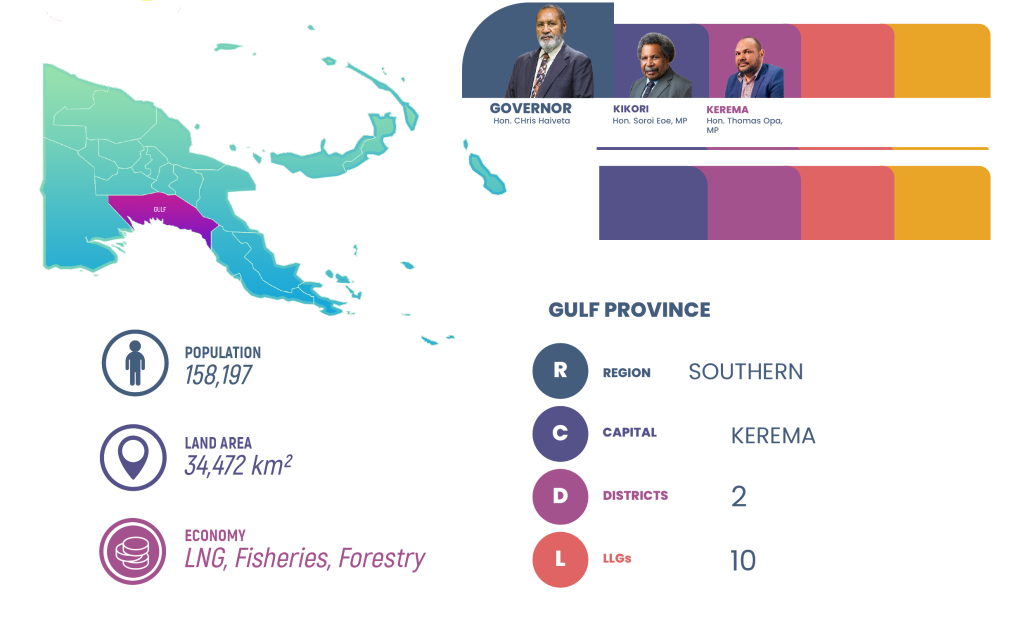
OUR PROVINCE
Gulf Province, situated in Papua New Guinea, is the second least populated province in the country, covering approximately 34,472 square kilometers of land. Its geographical composition comprises highlands, mountains, lowlands, and coastal areas, each offering unique prospects and difficulties for development. The province’s limited population of 158,197 people, as recorded in the 2011 Census, is accompanied by challenges in transportation due to the presence of large rivers, extensive swamps, and dense forests. These natural features significantly escalate the costs involved in delivering goods and services to the region.
Despite the obstacles, Gulf Province presents various development opportunities. The highlands and mountains hold potential for activities such as agriculture, mining, and hydroelectric power generation. The lowlands and coastal areas offer favorable conditions for sectors like fishing, aquaculture, tourism, and the establishment of port facilities. However, the province must address the challenges posed by its geography. The presence of numerous rivers, expansive swamps, and dense forests necessitates careful planning and sustainable practices to minimize transport costs and preserve the environment. By investing in improved transportation infrastructure and striking a balance between resource exploitation and environmental conservation, Gulf Province can foster sustainable growth and enhance access to goods and services for its residents.
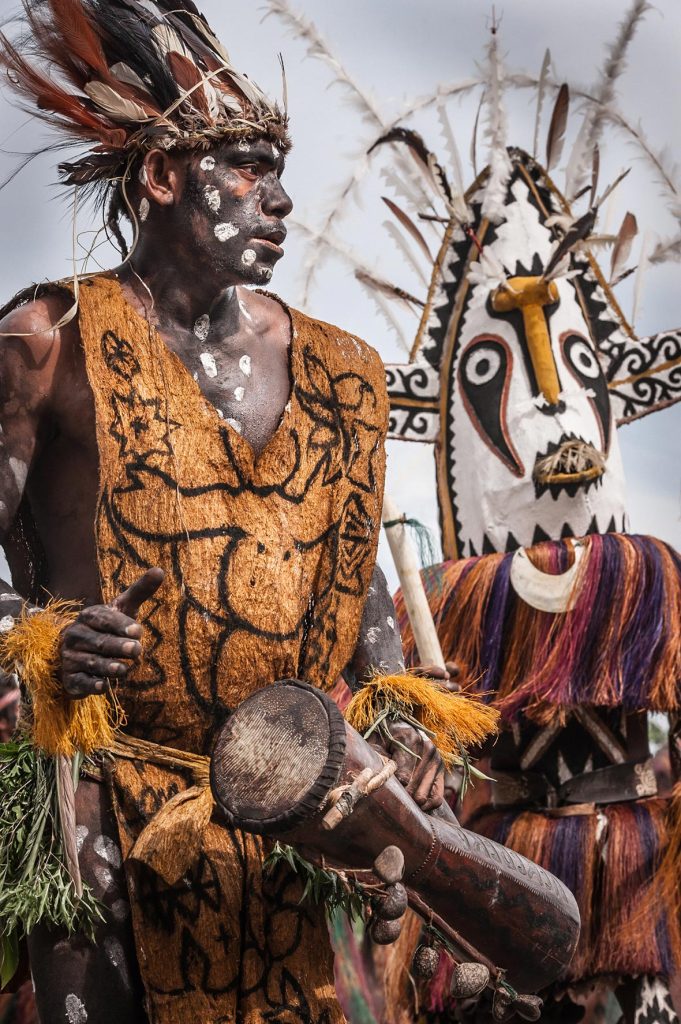
Provincial Government
The Gulf Provincial Government is the elected governing body responsible for the administration and development of Gulf Province in Papua New Guinea. Led by a Governor and Members of Provincial Assembly (MPAs), the government focuses on addressing the province’s specific needs and challenges. It works collaboratively with national government agencies and other stakeholders to improve infrastructure, education, healthcare, and economic opportunities in the province. The government plays a vital role in shaping the future of Gulf Province and improving the well-being of its residents through policies, programs, and initiatives.
